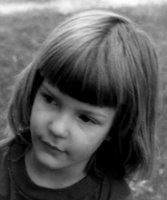I am sometimes concerned by the narcotic effects of bad novels. Usually, this concern reveals itself when I wake up, red-eyed and muzzy, after a late night of indulgence. Often, the effects haven't quite worn off, and a portion of my brain is still off in an alternate world of ugly ducklings, orphans, lost inheritances, honorable soldiers with tragic pasts--the whole paraphernalia of my preferred fix. I am a compulsive reader.
Last year, I realized I wasn't getting enough sleep because I couldn't go to bed without a novel and couldn't sleep until I finished it. It didn't matter if it was a book I'd already read. I found a temporary fix by fighting through Sir Francis Bacon and Thomas Browne, since fifty pages of 17th century essays usually soothed me to sleep without engendering a desire to continue. Unfortunately, I went on to Milton, and found that he's as soothing as a tack in the foot.
I've backslid. I have 23 library books on my bedroom floor. I checked all of them out since Tuesday and I've read them all. I ran out by seven last evening and found myself buying an e-book online. I really try to keep myself from doing that, especially since I realized I've spent $500 on e-books since September.
None of these have any pretensions to literature. In fact, they're Regency romances that run the gamut from "not embarrassing" to "I can't believe I'm reading this." Still, they can get met into the soothing, controlled world of debutantes and fortune hunters, handsome lords and quasi-feminist heroines. These books describe themselves as set "in Jane Austen's England", but nothing could be further from the truth. Austen is sarcastic and edgy. Her characters are flawed. The glassy world of escape romances is nothing but cardboard scenery and puppets compared to Austen's England.
But I like the puppets, the predictable plots, the improbably separation and eventual union of the protagonists. These books are both safe and engrossing, and I read them to soothe anxiety and drug myself into sleep. I suppose I could just drink a six-pack of beer, but books are a cheaper and more socially acceptable crutch than booze.
I am a "serious" reader, as well. I've done the Grand Tour of the classics. I can spell hermeneutics, even if I can't define it (them?) But real literature seduces the reader, catches and cozens him, then carries him past the safe borders of unreality back to what Faulkner called "the eternal verities." Real literature is challenging, assaultive, life-changing. It's not a substitute for Xanax.
There is a sad tendency in novelists who want to be literary to shoot for disturbing: to bombard their readers with pain, death and Deep Thoughts instead of bringing them into a crafted simalcrum of reality that is animated by its own consistency with human behavior and belief. This has all the disadvantages of real reading without any of the benefits. Tolstoy didn't need to light women on fire, or threaten grotesque explosions in soda-pop factories, to make his worlds work.
But Tolstoy isn't my problem: I dig myself into someone else's quiet world to bury my own fears. I sometimes find myself crippled by anxiety, unable to even start dealing with the piles of laundry, paperwork, chores, broken New Year's resolutions--and then I'll take ten or twelve novels and read until I've hypnotized my eyes away from the piles of work and can completed little tasks, one by one, until the pressure eases. This is better than nips at the whiskey bottle, but it's not healthy. In fact, the level of dysfunction can be traced by the kind of books involved. I use mystery novels for escape fiction under most circumstances, but the more deperate my need to run, the less abrasive the books I need. When Agatha Christie is took close to reality for my mental state, I know I'm in trouble.
I wonder how normal people manage. I'd wonder longer, but I have to go to the library.







